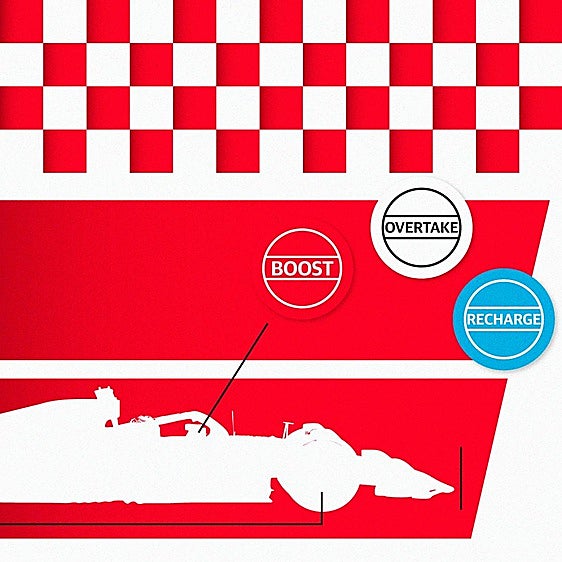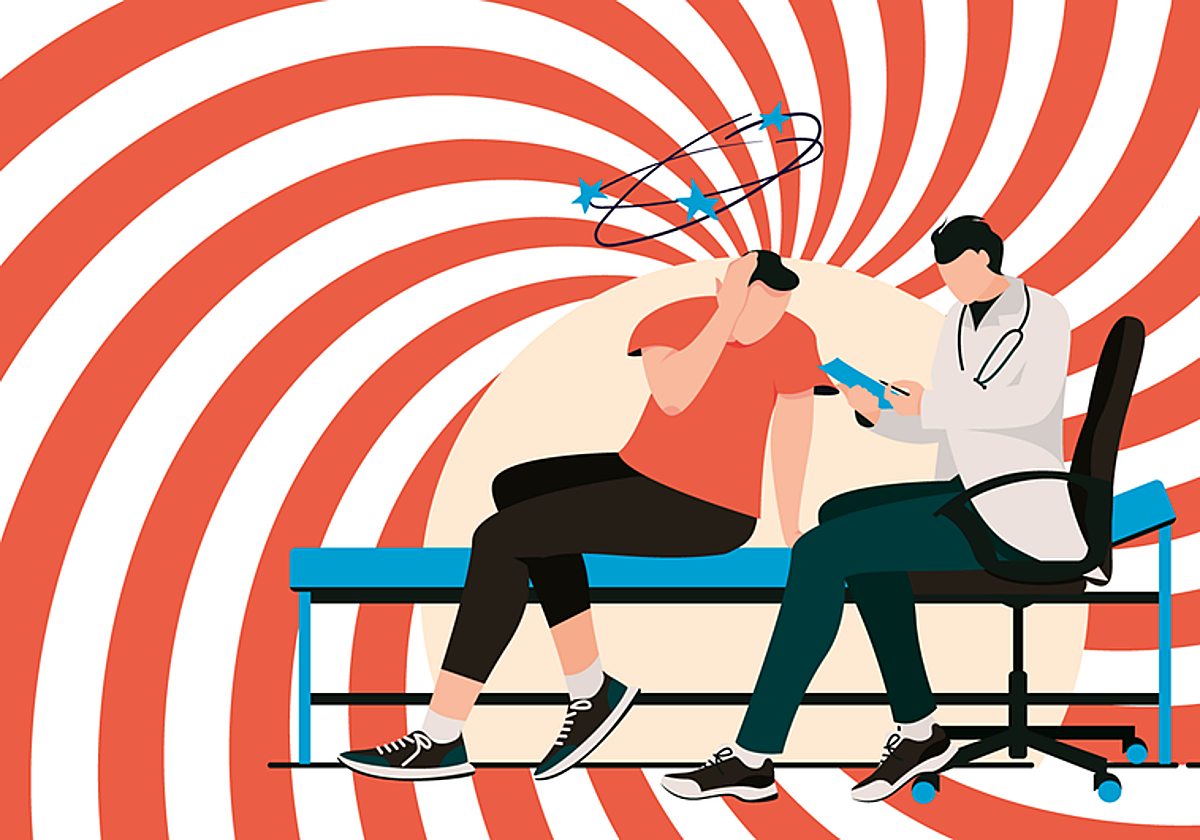‘Everything is spinning round’
Dizzyness is just a symptom; the important thing is to find the cause
Carmen Barreiro
Jueves, 6 de abril 2023, 14:52
Carmen recalls perfectly the first time she had vertigo, 15 years ago now.
"It affected me so much that I can even remember what I was wearing. I was sitting on the bed, reading some papers, and when I stood up I felt like the floor was beginning to slide away, like someone had suddenly pulled the rug from under my feet.
"It was like being on a boat which was out of control.
"It only lasted for a few seconds, but I felt dizzy for the rest of the afternoon," she says.
That time she didn't think it was important, but a few months later the same thing happened again, only worse than the first time, and it scared her.
"Everything started going round, and it didn't stop.
"Lying down didn't help, nor did being in a dark room... it was one of the worst feelings I had ever had," she says, having now recovered from what she describes as those "awful sensations".
"Vertigo isn't just dizziness. It is a disorder that affects balance and can be described as an illusion of movement, a type of hallucination.
"In other words, the patient feels that he or his surroundings are moving, although that isn't so. People often say it felt like the walls were moving, the bed was spinning round or the floor was sinking," says Dr Jesús Porta, the vice-president of the Spanish Neurology Society (SEN).
Symptom
He stresses that vertigo is not an illness but a symptom, so when it occurs it is important to ascertain what triggered it.
This could be anything from a sudden change of position to a vertebral problem or an alteration in the hearing, but it could also be due to illnesses which are important from a neurological point of view, such as a brain tumour, stroke or some type of head injury.
The cause of vertigo is what is important about it.
"When someone suffers an episode of this type, especially if the feeling of being unbalanced and that things around them are spinning, and it lasts for more than half an hour they should see their doctor to rule out the possibility that a neurological problem is the cause," Dr Porta says.
Undiagnosed
More than half of cases of vertigo (54%) are caused by alterations in the ear and some bouts can last for hours or even days. In fact, this sensation of being unbalanced is almost always related to a malfunction in the vestibular system, which is situated within the inner ear and responsible for maintaining balance and posture, coordinating the movements of the body and the head and fixing the gaze on a point in space.
"The most common type is called benign paroxysmal positional vertigo, and it causes brief episodes of vertigo in response to changes in the position of the head," says Dr Nicolás Pérez, co-director of the Otorhinolaryngology department at the Clínica Universidad de Navarra (CUN).
Also very common is so-called Ménière's disease, a disorder of the inner ear which affects balance and also hearing.
"The symptoms include recurring episodes of vertigo, maybe happening several times a month, nausea and vomiting, noise in the ear (tinnitus) and loss of hearing," the specialists say.
Vertigo can also have a viral origin, and this is more common between people aged 35 to 55, while the positional vertigo or the type that signals a stroke is more typical in the elderly.
Treatment
With regard to treatment, there are two types. One focuses on the symptoms (dizziness, nausea) and the other 'attacks' the illness that lies behind the episodes of vertigo.
Disabling
"It is a very disabling symptom and it is unfortunate that many patients take years to be diagnosed because the majority can be treated successfully," says Dr Porta.
Why do we get travel sick?
The vice-president of the Spanish Neurology Society (SEN), Jesús Porta, explains that one of the reasons we may feel dizzy when travelling is that “we were not made to move around in a car, or a boat, or to get on a plane”.
“Evolution didn’t take into account that we would be doing that in the future. The brain is like a great orchestra conductor, always looking for harmony between different parts of our body.
“The eyes, the nerves in the legs and the vestibular system (hearing) always have to have harmonious information. In other words, everything needs to be telling me the same thing, but when I get into a car, for example, my eyes are telling me one thing and my ears are telling me something else.
“And so I am looking behind me more, but my hearing tells me I am accelerating forwards, my eyes register movement in things around me but the nerves in my legs tell me I am sitting down.
“When that dissonance occurs between all the systems it produces a sensation of dizziness (motion sickness),” he explains.



